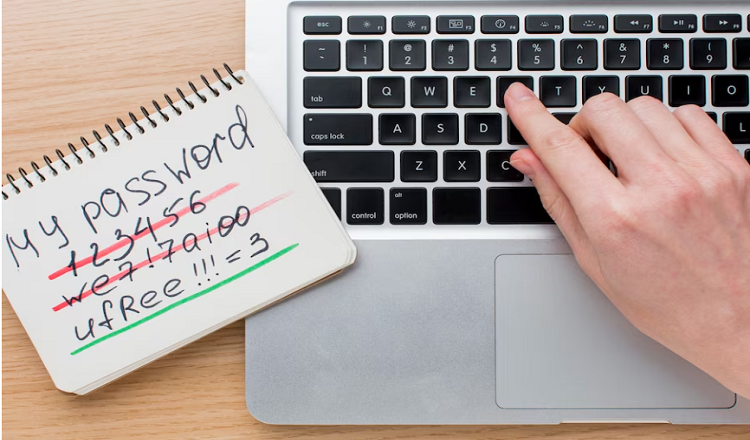It’s almost hard to avoid the steady flow of info in the modern digital age. Our personal information is continuously being gathered, tracked, and analysed, from social media profiles to online buying behaviours. Even though it may seem innocent, it’s critical to be aware of the potential threats associated with online data collecting and take precautions to safeguard our privacy in the big data era.
Have you ever done an internet search for a product only to have ads for that product follow you across the web? Or possibly businesses you’ve never heard of have called or sent you unsolicited emails. These are just a few instances of the various ways businesses and organisations track and examine our internet behaviour. And while some might claim that personalised services and targeted advertising are just a convenience, it’s vital to think about the possible negative effects of extensive data collection.
In this article, we’ll talk about internet privacy protection in the USA during the big data era. We’ll discuss the dangers of internet tracking and data collecting and offer helpful advice for protecting your personal data. You may ensure that your online activity is secure and protected in the face of the constantly changing environment of data collecting and analysis by taking proactive measures to preserve your privacy.
Use two-factor authentication and strong passwords.
Protecting your online privacy in the USA requires taking important precautions like using strong passwords and using two-factor authentication. Strong passwords are considerably harder for hackers to guess than simple, obvious ones because they use a combination of upper- and lowercase letters, digits, and symbols. Using the same password across numerous accounts should also be avoided in order to avoid a chain reaction in the event that one account is compromised.
By requiring a second form of identity in addition to your password, such as a fingerprint or a code delivered to your phone, two-factor authentication adds an extra layer of security. By doing this, you can make sure that even if someone gets to get their hands on your password, they won’t be able to access your account without the additional form of identification. Most online account settings allow you to easily set up two-factor authentication. You may significantly lower the chance of your accounts being hacked and your personal information being leaked by utilising strong passwords and two-factor authentication.
Update Your Devices’ and Software
It’s crucial to keep your software and hardware updated if you want to retain internet security in the USA. Important security patches that repair vulnerabilities and provide protection against possible cyberattacks are frequently included in software updates. Ignoring updates puts your devices and private data at risk of being stolen.
Check for updates frequently, then apply them right away to keep your devices current. On most devices and computers, you may accomplish this through the settings or options menu. Updates may offer performance enhancements and new features in addition to security patches, so it’s a good idea to stay current for the best device performance. You can guard yourself against potential security breaches and keep your devices operating efficiently by prioritising software upgrades and routinely checking for them.
Apply a VPN
In order to effectively safeguard your internet privacy in the USA, consider using a virtual private network (VPN). Your internet connection is encrypted using a VPN, which makes it far more difficult for hackers to intercept and access your data. This is especially crucial while utilising public Wi-Fi networks, which are frequently unprotected and open to online attacks.
Before selecting and configuring a VPN, do some research on reliable VPN companies and contrast their features and costs. Once you’ve decided on a service, install and set up your device according to their instructions. This usually entails getting the VPN software, setting up the connection, and choosing a server location. Even on public networks, you can guarantee that your internet activity is private and secure by utilising a VPN.
Reduce Your Online Presence
The practise of gathering and using user data on social media platforms for targeted advertising and other uses is well-known. Personal data like your age, location, and interests, as well as your browsing and search history, might be found in this data.
Start by evaluating and modifying your privacy settings on each network if you want to keep your social media presence to a minimum and safeguard your privacy in the USA. This may involve changing who can view your profile and posts and customising how much of your private information you disclose. Using a pseudonym in place of your real name and avoiding disclosing private information like your address or phone number are other options to think about. Additionally, be wary of third-party apps and quizzes because they may secretly capture and distribute your data. You can improve your online privacy protection by being aware of your social media presence and taking efforts to minimise your data sharing.
Use caution when using free WiFi
In the USA, public Wi-Fi networks frequently lack security and put your online privacy at serious danger. Your data, including login credentials, financial information, and other sensitive information, can be easily intercepted and accessed by hackers.
It’s crucial to adopt security measures, such as a virtual private network (VPN), when accessing public Wi-Fi. Your internet connection is encrypted using a VPN, making it more challenging for hackers to intercept and access your data. Additionally, it’s crucial to refrain from critical activities like online banking and shopping when using public Wi-Fi networks. Be sure to avoid connecting to networks with vague or suspicious names and only use secure, trusted networks. When using public Wi-Fi networks, you can help protect your online privacy by following these measures.
Follow your online activity
To preserve your privacy and make sure that your personal information isn’t being used in the USA without your knowledge, it’s essential to keep an eye on your online activity. You can find possible hazards and take action to reduce them by completing a privacy audit of your online activities and accounts.
Check your privacy settings on social media and other online platforms to begin with and make sure you’re only exchanging information with dependable people and organisations. Additionally, constantly change your passwords and periodically check your online accounts for unauthorised activity or questionable activities. Online technologies can also be used to monitor your personal data and notify you of any potential vulnerabilities or breaches. In the era of big data, you can better protect your privacy by being alert and keeping an eye on your online presence.
Conclusion
Protecting your online privacy is more crucial than ever in the age of big data and online tracking. Using strong passwords, enabling two-factor authentication, keeping software and hardware up to date, using a VPN, limiting your social media presence, being cautious when using public Wi-Fi, and monitoring your online presence are just a few of the tips and strategies we covered in this article for protecting your online privacy in the USA.
By taking these precautions, you can safeguard your personal information from online monitoring and data collecting concerns. Additionally, we urge readers to stay informed on issues relating to internet privacy and security by looking for alternative sources and keeping up with the most recent advancements in this area.
You may also help protect your online privacy by using tools like security software, privacy-focused apps, and online privacy guides. You can better safeguard your online privacy and retain control over your personal data by being proactive and remaining informed. Remember that you have a right to your privacy online, so protect it by taking action right away.
Read More You May Like:











